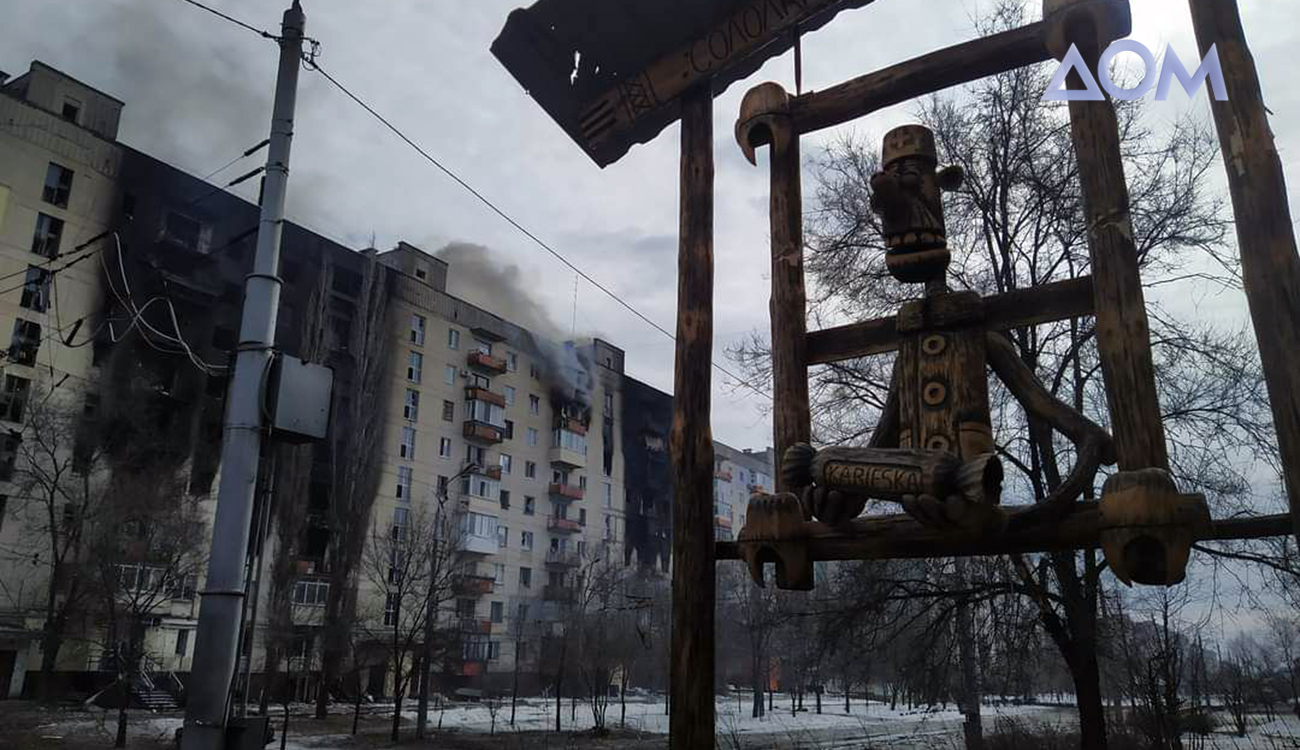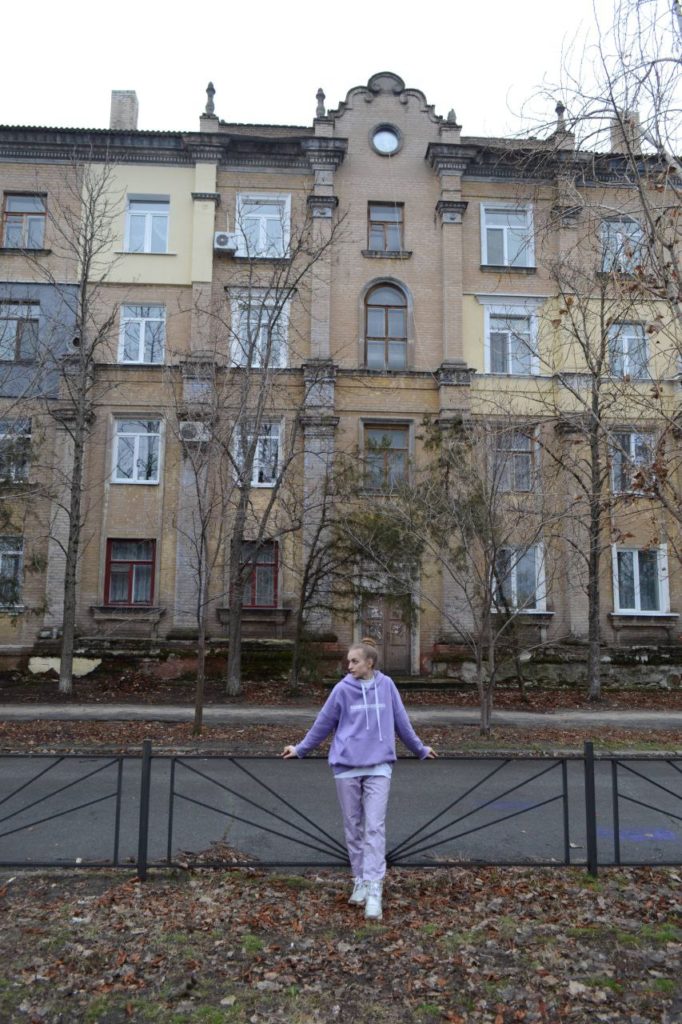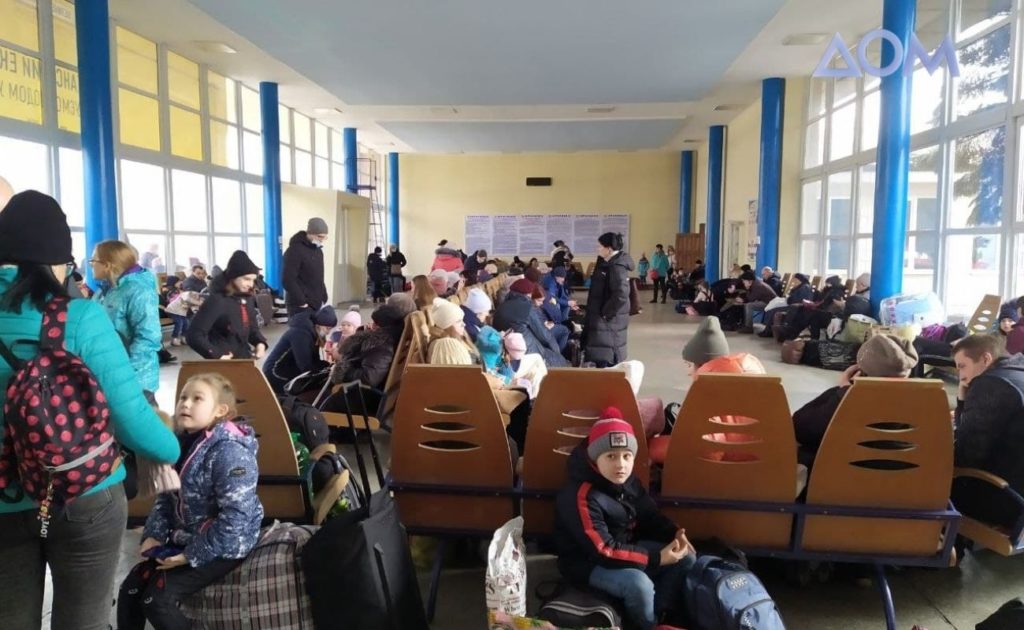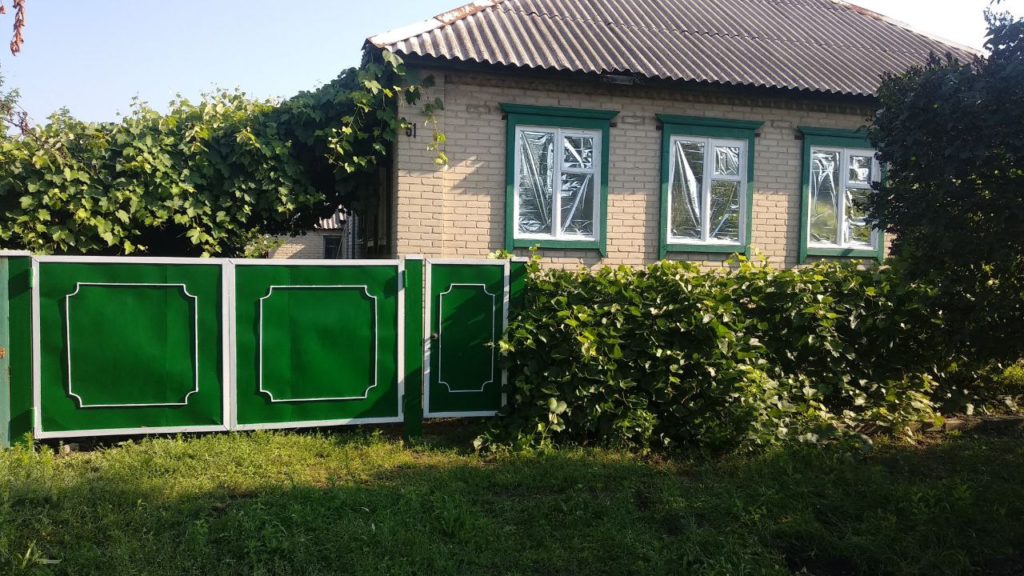“Friends’ houses turned into black charred boxes”. Story of a young woman who managed to evacuate from Severodonetsk
10 / 04 / 2022
This article was translated by our volunteer Natavan
This story was sent to CrimeaSOS by Albina Karman, a journalist, and a volunteer. She talked to a young woman from the city of Severodonetsk, Luhansk region, who was forced to relocate to Ostroh in the Rivne region with her mother and sister. She continues to volunteer and help those who still remain in her hometown.
“We didn’t leave in 2014, and we won’t leave now”
Sofia Reshetylo was evacuated from Severodonetsk on March 6 due to active hostilities. At first, Sofia, her mother and sister did not want to leave the city, but then it became too dangerous to stay there.
The shelling of Severodonetsk in the Luhansk region began on February 26. Inhabitants of the city were all too familiar with sounds of war since the hostilities in their area began in 2014 and escalated more than once since then. That is why when the shelling started this time around locals weren’t surprised.
Sofia says she did not expect a full-scale invasion. According to her, it didn’t make sense because everyone knew about the buildup of military force near the border, their deployment and number of troops. For that reason, when her brother shared the news that the war started at 7 am on February 24, Sofia replied: “The war in Ukraine has been going on for 8 years, this is not news.” But then her brother shocked her with the news of the air strikes on Kharkiv and Zhytomyr.
Sofia is a student of the Ostroh Academy in the Rivne region. She spent the winter holidays at home and was planning to go back to Ostroh at the start of the next semester ready to dive into her studies. Now her plans went awry, even though she already had the tickets.
 Photo from Sofia’s personal archive.
Photo from Sofia’s personal archive.
Instead of going back to university in Ostroh, Sofia started going to the ATB with her mother to help stock the shelves with groceries. Groceries were flying off the shelves, there were not enough hands to hand them out. She wrote to her friends that they were not going to leave, because they did not leave in 2014 and weren’t going to leave now. Sofia and her family stayed and continued to volunteer.
One day Sofia and her younger sister went into the city to look for the groceries to stock up for two months. To find what they needed, they had to endure more than one queue and travel far to a remote area of the city. That day they came close to being hit by the mortar fire.
As the girls were waiting in a checkout line, the shelling outside intensified and it became clear that it was very close. They left the cart with groceries and ran out into the street. The area outside of this shopping center was residential with no military or government infrastructure at all. They saw two men running towards a car in a half-empty grocery store parking lot. These men who turned out to be from Lysychansk, helped them out and gave them a ride home. 20 minutes after they got home a missile hit the road.
Their mother came close to danger while delivering food to an elderly woman. A shell hit close to this woman’s home knocking out windows in nearby buildings. This time family’s resolve to stay in Severodonetsk was shaken.
Evacuation as a quest for survival
The realization that they needed to be evacuated came on March 2nd. Except there was no organized evacuation process at that time. Evacuation trains departed from Lysychansk which is 15 kilometers away from Severodonetsk. Which meant they had to get there somehow.
“It used to cost 90 hryvnias to travel between these towns, but now they were charging 1,000 hryvnias per person and because there were so many takers, it was impossible to book a ride,” Sofia said.
According to Sofia, there was no other way out. Those who had their own cars had already left even though it was very dangerous. Her friend’s car was blown up while her family was evacuating by car on February 27. Sofia’s friend and her husband died in the explosion. Their child survived and is now in a hospital.
“Higher powers intervened again,” Sofia continues, referring to the shelling that they narrowly missed earlier, “We met a man who drove us for free”.
 Lysychansk, illustrative photo. Source: DOM
Lysychansk, illustrative photo. Source: DOM
It was March 6. There were no signs of any evacuation trains that morning. Sofia, realizing that the situation was not improving, said that they were ready to pack up and walk to the train station. She was ready to spend as many nights as she had to, so that her family could finally leave. A message came on her phone that there would be a train on March 6 boarding in 4 hours from the time of their departure from Severodonetsk.
At that time, several hundred people who missed the previous train remained at the station. In total, about 2,000 people were evacuated at the same time with Sofia. Volunteers at the station had a mobile kitchen where they cooked food for the evacuees. Police and local territorial defense coordinated the boarding process, so everything was calm and organized.
Now Sofia Reshetylo, her mother and sister are in Ostroh. Sofia says that they got a warm reception there and shares a little story about her favorite candy bars.
“When we were at the train station, I had a bag full of candy bars. There were a lot of little kids there too, so I handed out all of my candy bars and left nothing for myself. When we arrived at the volunteer center in Ostroh, we were handed a bunch of groceries including lots of my favorite candy bars”.
 Sofia House, where the occupiers now live. From Sofia’s personal archive.
Sofia House, where the occupiers now live. From Sofia’s personal archive.
Now that Sofia’s family arrived in Rivne region, they do not sit idly by. They continue to support their native Severodonetsk by sharing information, connecting people with humanitarian aid, and assisting with evacuations. Even though her family received painful news about their house, which was now occupied by the invaders, Sofia remains strong.
When last Sofia spoke to the author of this article Albina Karman, she said she was helping a man from the occupied Rubizhne who needed to return to his hometown. And earlier – shared a disturbing story about searching for advice in an emergency. Residents of Severodonetsk wrote in an online chat about a mother and a child who came under shelling. Child had horrific injuries to his abdomen with exposed intestines. Sofia struggled to pass on urgent instructions to people who were close and were able to help.
“We are here, but I share all the worries with those who stayed in the city,” says Sofia. She now knows the scale of destruction to her hometown. The green parks where she used to walk have now become a battlefield. The houses of her friends turned into black charred boxes. The fires can’t even be extinguished because it is difficult for the first responders to get close to them because of the constant shelling.
Sofia shares many worries and many more losses. She speaks with restraint of the pain she feels for not being able to help everyone who needs it. She is hurting for the people who are still back home hiding in basements, for all the dead bodies scattered in the streets that can’t be properly buried, for the abandoned homes, for those who can’t be reached for weeks, for her native Severodonetsk.